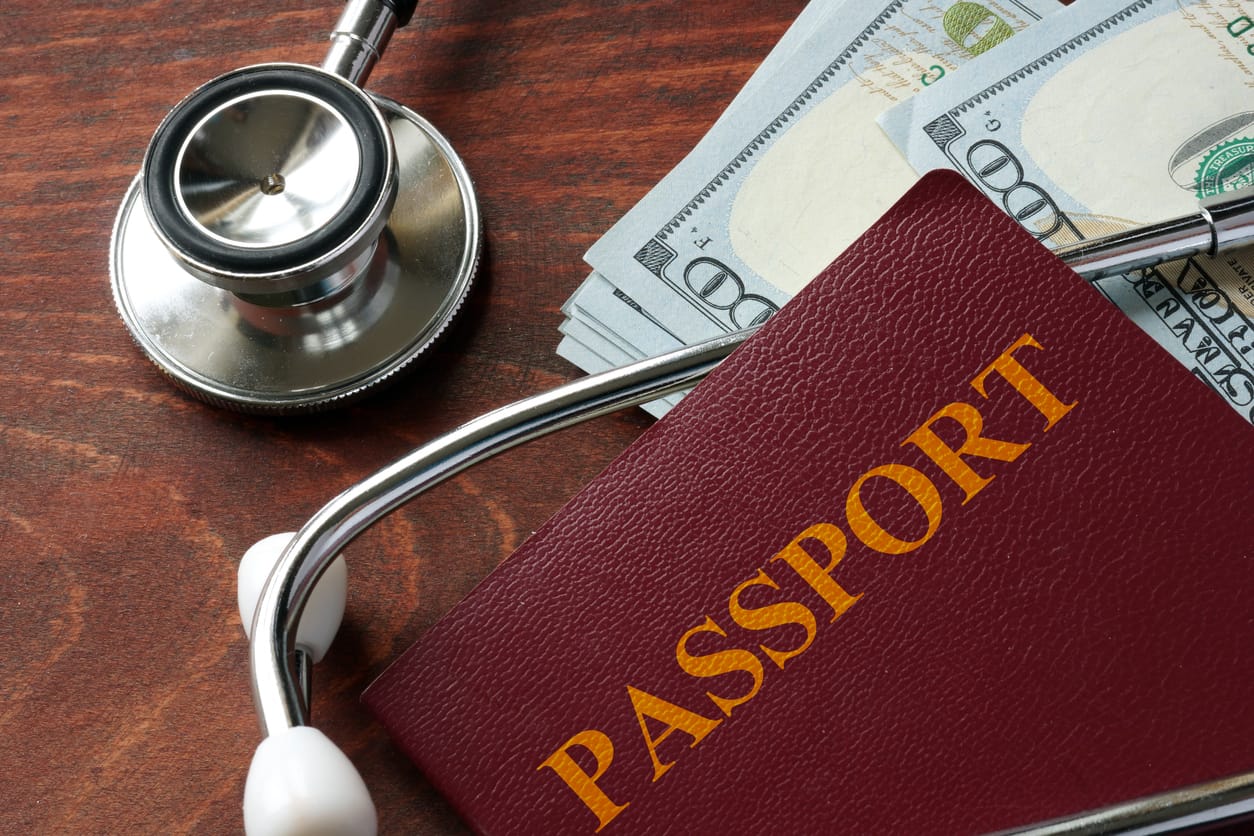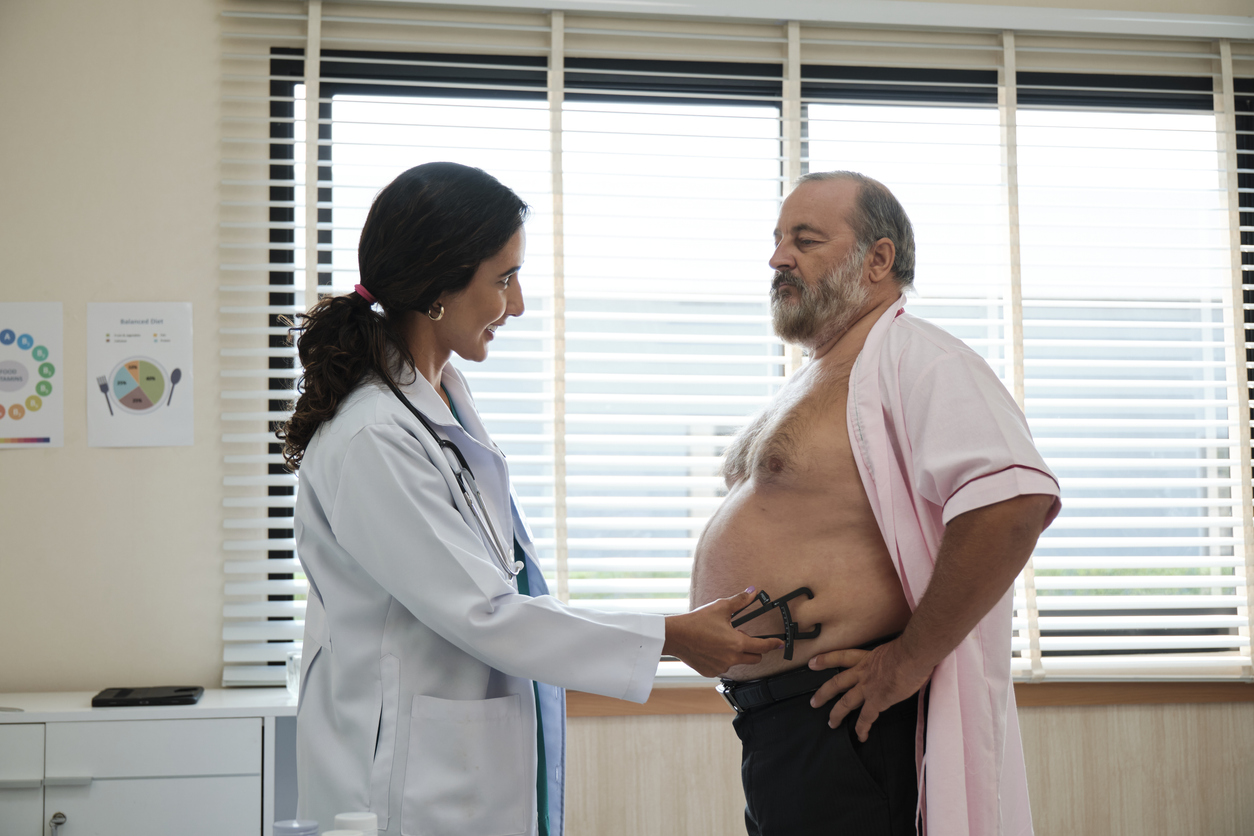

Today, there are many options for weight loss surgery. However, you may need to travel to get the support you need to reach your weight loss goals. Medical tourists account for at least 2% of bariatric procedures worldwide, and this percentage is expected to continue growing. When considering weight loss surgery, it is essential to set a realistic goal to ensure healthy and sustainable progress.
While this type of travel may seem challenging, improving your health and fitness is a key motivation for many people pursuing weight loss surgery. Birmingham Minimally Invasive Surgery makes it easy with our priority pass. No worries if you’re unsure whether this option is right for you. Our experienced bariatric surgeons are here to answer your questions about this program.
Understanding Weight Loss
Achieving and maintaining a healthy body weight involves a multifaceted process that extends beyond diet and exercise. It involves a comprehensive approach that includes healthy eating patterns, regular physical activity, and a positive mindset. Adopting a balanced approach and a sustainable eating pattern is crucial for long-term success. Weight loss efforts should be tailored to individual needs and goals, taking into account age, gender, body composition, and underlying health conditions.
A successful weight loss program is not about quick fixes or extreme diets; it’s about making sustainable lifestyle changes that promote long-term health and well-being. This includes adopting healthy eating habits, such as following a Mediterranean diet rich in fruits, vegetables, whole grains, and healthy fats. A balanced diet should encompass all food groups, focusing on whole foods and lean proteins to ensure nutritional adequacy and support overall health. Choosing nutrient-dense foods and minimizing processed foods can further support sustainable weight loss and enhance overall well-being. Additionally, incorporating regular physical activity into your routine can help you lose weight and maintain weight loss by burning calories and building muscle. Maintaining a calorie deficit—consuming fewer calories than your body needs—is a key component of effective weight loss. Practicing portion control and being mindful of portion sizes can also help prevent overeating and support your weight management goals.
It’s also essential to address any underlying issues that may be affecting your weight, such as emotional eating or stress. Working with healthcare professionals, such as registered dietitians and mental health experts, can provide valuable support and guidance on your weight loss journey. Remember, the goal is to achieve a healthy body weight that enables you to feel energetic, confident, and capable of performing daily activities efficiently.
What is a Healthy Weight?
A healthy weight minimizes the risk of chronic diseases, such as heart disease, type 2 diabetes, and certain cancers, while also allowing you to feel energetic and confident in your daily life. Unlike the often unrealistic societal beauty standards, a healthy weight is based on your health needs and goals.
Healthcare professionals commonly use the body mass index (BMI) to determine a healthy weight. A BMI between 18.5 and 24.9 is generally considered healthy, while a BMI of 25-29.9 is categorized as overweight, and a BMI of 30 or higher is classified as obese. However, BMI is not a perfect measure as it doesn’t account for muscle mass or body composition. Extreme or unbalanced dieting can lead to health issues, including nutritional deficiencies and muscle loss. Therefore, it’s crucial to consult with a healthcare professional to determine a healthy weight that’s right for you.
What is BMI’s Priority Pass?
The Priority Pass program at Birmingham Minimally Invasive Surgery helps individuals worldwide get weight loss surgery quickly and affordably. This program is designed around our gastric sleeve procedure, which is adequate for most patients seeking to lose weight.
With our Priority Pass, you receive an initial consultation, pre-operative testing if necessary, and bariatric surgery within two business days. All appointments occur at our outpatient surgical center, which is affiliated with St. Vincent’s Hospital in Birmingham, Alabama. The hospital provides emergency and other support to both our patients and staff.
One of our highly experienced, board-certified bariatric surgeons completes each procedure. If you are traveling a long distance, we can see you via telemedicine after you leave our facility for the required follow-up appointments, allowing you to access care from the comfort of your own home.
Who is the Ideal Candidate for the Priority Pass Weight Loss Program?
When it comes to losing weight, people have different goals and desires. This program is ideal for individuals with a body mass index (BMI) of 30 or higher and no prior history of weight loss surgery. Depending on your health history, you may need medical clearance for surgery.
A consultation with our bariatric surgeon can help determine if you are a candidate for this program or any other procedure we offer. For health and safety reasons, you will need to participate in this consultation and complete a medical history form before proceeding with your surgery.
Which Procedures Can I Get With My Priority Pass for Weight Management?
Through the Priority Pass program, patients can receive a sleeve gastrectomy, also known as a gastric sleeve procedure. This procedure alters the stomach’s structure, reducing its size by at least two-thirds. The result is a smaller stomach that fills up quickly, limiting the quantity of food you can eat and helping you consume fewer calories.
After your procedure, you should follow a structured diet plan or a personalized nutrition plan to support recovery and weight management. You will be on a clear liquid diet immediately after surgery, and you will be able to consume pureed food after about two weeks. After two months, you can return to a regular diet while consuming smaller portions. Various dietary approaches, such as a vegetarian diet, can be adapted for post-surgery needs. When choosing healthy fats, opt for olive oil instead of saturated fats for better health outcomes. It is also important to limit sugary snacks and indulgent foods to prevent weight gain after surgery and to avoid consuming more calories than necessary to maintain your weight loss results.
Like any weight loss surgery, gastric sleeve procedures come with the risk of complications. While you may experience pain after the procedure, it can be managed with medication. Your risks may vary, so we recommend discussing your concerns with your bariatric surgeon during your first consultation.
How Much Will My Procedure Cost?
At Birmingham Minimally Invasive Surgery, we recognize that cost can be a significant barrier to receiving the care you need, particularly for bariatric procedures. That’s why we offer programs like our Priority Pass to make care more affordable for our patients. Our options can work for nearly any budget.
With the Priority Pass, the cost of your initial consultation, surgery, and first post-operative visit totals just $7,999. Subsequent follow-up appointments will only cost $125 per visit. We also offer financing options to talk about during your first consultation.
Mindset and Behavior Modification
Mindset for Losing Weight
Embarking on a weight loss journey requires more than just changes in diet and exercise; it necessitates a shift in mindset. Healthy habits and positive relationships with food and your body are crucial for long-term success. Here are some key mindset shifts to help you achieve your weight loss and fat loss goals:
- Focus on Addition, Not Subtraction: Instead of eliminating foods you love, concentrate on adding nutritious foods to your diet. This approach helps you feel more positive and empowered about your food choices.
- Emphasize Self-Care: Weight loss isn’t solely about food and exercise; it’s also about nurturing your mental and emotional health. Prioritize self-care activities, such as meditation, yoga, or spending quality time with loved ones.
- Celebrate Small Victories: Recognize and celebrate the small milestones you achieve along your weight loss journey. This practice keeps you motivated and encourages you to continue making healthy choices.
- Practice Self-Compassion: Understand that setbacks are a regular part of the weight loss process. Instead of being hard on yourself for slip-ups, practice self-compassion and focus on getting back on track.
- Focus on Progress, Not Perfection: Weight loss is about making progress toward your goals, not achieving perfection. Celebrate your progress and avoid striving for an unrealistic ideal.
- Eat mindfully: Pay attention to your eating experience by savoring flavors, noticing hunger cues, and avoiding distractions during meals. Eating mindfully can help prevent overeating and support both weight management and fat loss.
Mindful Eating and Hydration
Mindful eating is a powerful tool that can transform your weight loss journey and support successful weight loss. By tuning into your body’s hunger and fullness cues, you can prevent overeating and develop a healthier relationship with food. Take time to savor each bite, eat slowly, and eliminate distractions like screens during meals. This approach not only helps you enjoy your food more but also makes it easier to recognize when you’re satisfied, reducing the likelihood of consuming excess calories.
Staying hydrated is equally important for overall wellness and practical weight loss efforts. Drinking enough water throughout the day helps regulate your appetite, supports healthy digestion, and can even boost your metabolism. Aim for at least eight glasses of water daily, and try to limit sugary drinks that can add unnecessary calories to your diet. By prioritizing mindful eating and proper hydration, you’ll be better equipped to make choices that align with your weight loss goals and overall well-being.
Exercise and Physical Activity
Incorporating regular exercise and physical activity into your routine is a key component of any successful weight loss program. Engaging in at least 150 minutes of moderate-intensity aerobic exercise, such as brisk walking or cycling, or 75 minutes of vigorous-intensity activities like running or swimming each week can help you burn calories and shed pounds. Strength training exercises are also essential, as they help build lean muscle, which boosts your metabolism and supports long-term weight management.
High-intensity interval training (HIIT) is another effective way to maximize your workouts and improve cardiovascular health. The best approach is to find physical activities you genuinely enjoy—whether it’s dancing, hiking, or playing a sport—so that exercise becomes a sustainable and enjoyable part of your lifestyle. Remember to listen to your body, allow for rest when needed, and celebrate the progress you make along the way. Consistent physical activity not only supports weight loss but also enhances your overall health and well-being, including increased energy levels.
Prioritizing Sleep and Recovery
Prioritizing sleep and allowing your body time to recover are often overlooked factors in achieving weight loss and maintaining overall health. Aim for 7-9 hours of quality sleep each night to help regulate hunger hormones, support a healthy metabolism, and aid in muscle recovery after workouts. Poor sleep can lead to increased cravings for unhealthy foods, reduced motivation for physical activity, and a slower metabolism—all of which can hinder your weight loss progress.
To improve your sleep quality, establish a consistent bedtime routine, limit screen time before bed, and create a relaxing environment in your bedroom. In addition to sleep, be sure to schedule rest days and incorporate active recovery activities, such as gentle stretching or yoga. These practices help your body repair and rebuild, reducing the risk of injury and supporting your weight loss and overall health goals.
Support Systems and Resources
Working with Nutrition Experts
Collaborating with a registered dietitian or nutrition expert can significantly enhance your weight loss efforts. These professionals offer valuable insights and personalized guidance to help you achieve your goals. Here’s how a nutrition expert can support you:
- Develop a Personalized Eating Plan: A nutrition expert can create a tailored eating plan that aligns with your needs, preferences, and lifestyle.
- Set Realistic Goals: They can help you set achievable weight loss goals and develop a strategic plan for success.
- Stay Accountable: Regular check-ins with a nutrition expert can keep you on track and motivated to continue making healthy choices.
- Address Underlying Issues: They can help identify and address underlying issues, such as emotional or disordered eating, that may hinder your weight loss efforts.
- Provide Ongoing Support: A nutrition expert offers continuous support and guidance as you work toward your weight loss goals.
When selecting a nutrition expert, it is essential to find someone who is a good fit for you. Look for a professional who is:
- Credentialed: Ensure the nutrition expert is credentialed and has experience working with clients with similar needs and goals.
- Non-judgmental: Find someone who is supportive and non-judgmental and who will work with you to develop a personalized plan that meets your needs.
- Knowledgeable: Select a nutrition expert who stays current with the latest research and trends in nutrition and weight loss.
- Accessible: Select someone accessible and available to answer your questions and provide ongoing support.
By working with a nutrition expert, you can develop healthy eating habits, manage your food intake, and achieve a healthy body weight, all while receiving the support and guidance you need to succeed.
Tracking Progress and Celebrating Success
Tracking your progress is an essential part of staying motivated and committed to your weight loss journey. Use a food diary or a mobile app to monitor your food intake, physical activity, and weight loss milestones. Taking progress photos, recording measurements, and noting changes in body composition can help you see the tangible results of your efforts.
Don’t forget to celebrate small victories along the way—whether it’s drinking more water, completing a challenging workout, or making healthier food choices. Sharing your achievements with a friend or support group can provide extra motivation and accountability. Most importantly, focus on your overall wellness and health, not just the number on the scale. By recognizing and celebrating your successes, you’ll build the confidence and momentum needed for sustainable and prosperous weight loss.
Learn More About BMI’s Priority Pass Program
Regardless of your candidacy, our team can help you explore various options to aid in weight loss. To determine if BMI’s Priority Pass program is right for you, please get in touch with us online or call (205) 858-1211.
See if You Qualify for BMI’s Priority Pass Program to Maintain Weight Loss Today
As a leader in bariatric surgery in Alabama and the United States, Birmingham Minimally Invasive Surgery receives patients from around the world through our Priority Pass program. Once they arrive, we offer our patients various options to help them reach their weight loss goals.
If you have concerns or questions about our Priority Pass program or weight loss procedures, please get in touch with us online or call (205) 858-1211 to schedule a consultation. Our team would be happy to answer your questions and provide the guidance you need.












